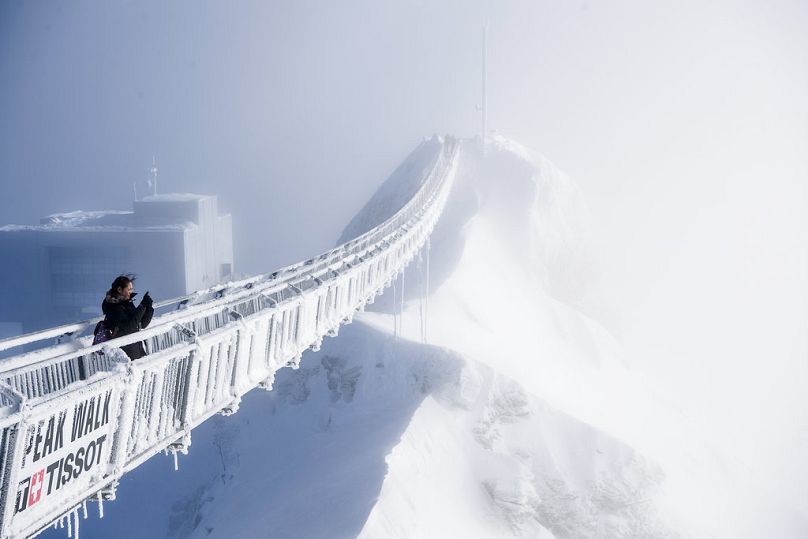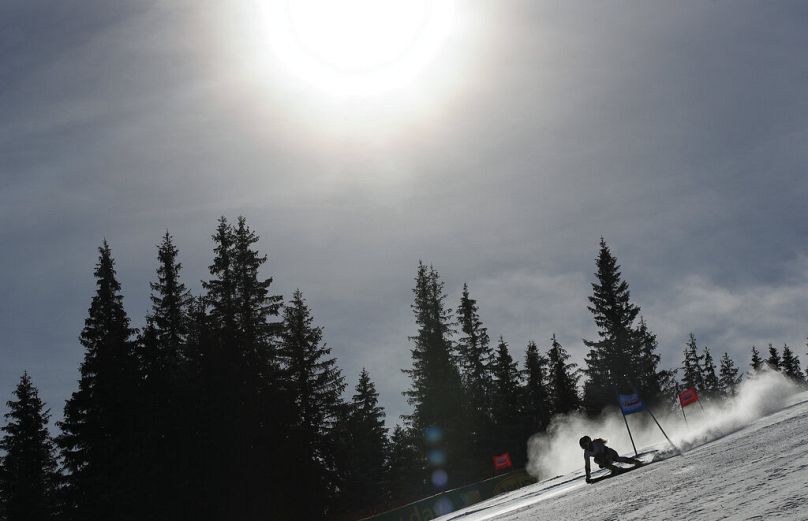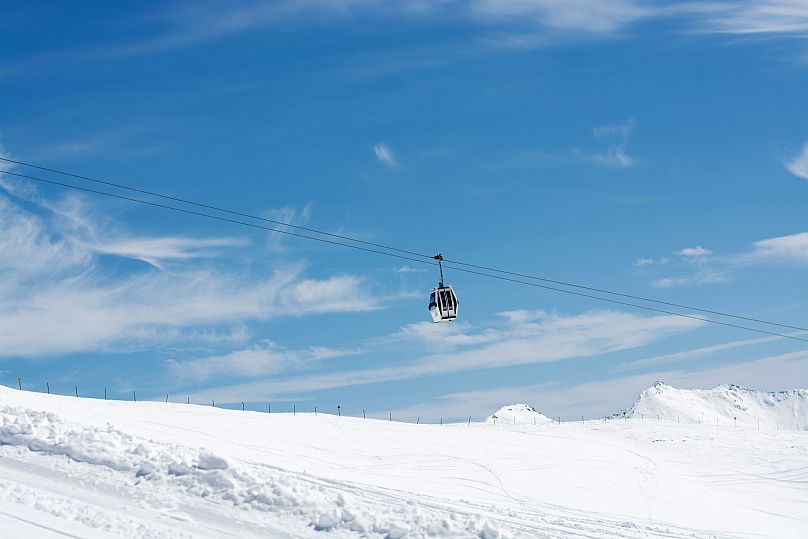It’s estimated that some 24 per cent of ski resorts are shut across Europe due to higher-than-average temperatures but there is still a chance to get your snow fix this February.
February half-term is usually a near-guaranteed time for ski lovers to find snow in Europe - but it may be significantly harder this year.
 ADVERTISEMENT
ADVERTISEMENT
 ADVERTISEMENT
ADVERTISEMENT
Instead of discovering new snowfall at the continent’s many resorts, families heading off on ski trips during the school holiday could find good conditions difficult to come across.
January was the hottest on record - pushing 12-month global average temperatures over the 1.5 degrees Celsius threshold for the first time. In southern Spain, some experienced heat of over 30C - unheard of for this time of year.
At the end of last month, it was estimated that some 28 per cent of European ski resorts in the likes of Spain, France and Switzerland were closed.
This figure has now dropped closer to 24 per cent, according to Skiresort.info - but it’s still a large chunk of closures to be aware of if you are planning a trip.
Which countries have been hardest hit - and where is still worth visiting?
Across the Alps - which are found in Monaco, France, Switzerland, Italy, Liechtenstein, Germany, Austria and Slovenia - the snow cap has decreased by 5.6 per cent each year over the past half a century.
That’s according to research from the University of Padova and the Institute of Atmospheric Sciences and Climate in Bologna, Italy.
However, all is not lost for those keen to hit the slopes - here’s the situation in many of Europe’s most popular resorts.
France
In France, a number of ski resorts - particularly in the Pyrenees - have seen unusually warm weather this year which has led to a lack of snow.
Taking those circumstances into consideration, forecasters are saying it is very unlikely that snow in several resorts will be replenished before the half-term holiday begins.
However, despite the fact that countless resorts in France have seen high temperatures at all altitudes which has seen thawing snow in many areas, it’s not all bad news.
Heavy snowfall early in the season has left some of the country with a solid snowpack which has been up to 4.2 metres high in the Les Arcs area.
The vast 3 Valleys locale, too, has announced that 95 per cent of its runs will remain open for the foreseeable future.
Switzerland
Switzerland - famous for its luxurious, top-quality destinations - has seen a similar number of resorts forced to shut.
In January, a temperature of 8C was recorded in Haute-Maurienne, Savoie, at an altitude of around 1,800 metres - something very concerning to climate experts.
It is still, though, a solid destination for a skiing trip this February.
With many high-altitude resorts, skiers haven’t suffered a lack of snow if they picked their runs carefully. Despite some gusty winds, conditions are better the further you climb.
Laax has recorded the country’s deepest snow on its glacier, where it lies at more than 3.5 metres deep. Verbier and the Four Valleys too say around 95 per cent of their terrain remains open.
Eastern Europe
If in doubt, maybe head to Eastern Europe, where there are reports of good conditions at high altitudes - but less on lower runs. Much of the region has recorded very little snowfall, but wintery conditions are better than those in the Alps so the snow which has fallen is likely to stay.
In Slovakia and Bulgaria, the Jasna and Borovets resorts have both announced that most of their runs are open and have ideal conditions.
Bansko in Bulgaria, though, is one to avoid - with just half of its terrain currently skiable.
Austria
In Austria, the vast majority of resorts have been able to stay open as the temperatures have not been overly warm compared to other regions.
While some Austrian resorts have seen predominantly warm, sunny weather over the beginning of February, In the Snow says those at higher altitudes have been seeing fresh snowfall.
Kitzsteinhorn in the west of the country has confirmed snow depths of some 25cm over the past few days.
Italy
While bases in Italy’s Dolomites have been worse hit than those in the Alps, the vast majority of runs are still accessible. Temperatures of upwards of 10C are causing concern, but 75 per cent of resorts in the so-called Milky Way (Via Lattea) around Sauze d’Oulx and Sestriere are still open.
Scandinavia
In Scandinavia, it isn’t high temperatures causing problems - but gale force winds, which have impacted mostly Norwegian resorts, forcing some of them to close.
That weather has calmed a little as the week has progressed, meaning that much of the northern European region is home to excellent snow quality, with Voss in western Norway announcing base depths of some 2 metres.
Why not think outside of the box with Scotland?
Scotland is perhaps not the first destination most would think about for a skiing trip, but it’s becoming ever more desirable as an option.
In January, all five of the ski centres in the country managed to operate simultaneously for the first time this season. It wasn’t long-lived, however, when they were soon made to close thanks to intense gales followed by record-high temperatures.
Conditions are a little better now - but we would advise checking snowfall before making the journey.













